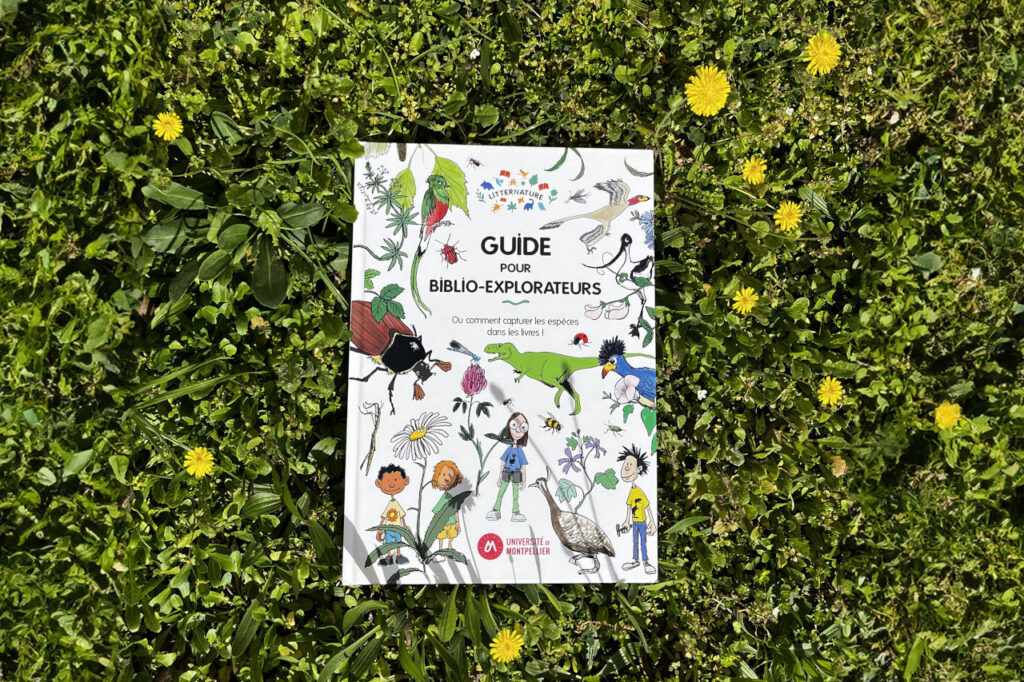Guide for library explorers: an adventure to discover biodiversity
After more than three years of work on the LitterNaturepublishing project, the scientific culture departmentat the University of Montpellier has published its book Guide pour biblio-explorateurs(Guide for Library Explorers). This book is the latest addition to the department's range of scientific outreach activities, which aim to explore the hidden biodiversity in children's literature in an original way with young audiences and families.

Inspired by the traveling exhibitions of the LitterNature project on natural sciences for curious non-specialists, this book introduces us to species of plants, insects, birds, and even extinct species: dinosaurs. Throughout the book, characters who are passionate about biodiversity explain the principles of evolution, species classification, and the survival strategies of certain species through entertaining examples such as: "Why do some flowers smell like corpses?" All this is presented in an accessible and popularized way. This book is a continuation of what the University of Montpellier's scientific culture department has been offering since 2019, reaching out to young audiences at literary festivals and working with 35 media libraries.
Enriching the imagination
Beyond the book, LitterNature offers a veritable ecosystem of scientific mediation via its website. It invites young readers to identify living species found in children's literature. All they have to do is take a photo of the animal in question and answer a questionnaire. Nearly 1,300 contributions have been made by more than 440 budding bibliophile-naturalists.
In addition to offering educational activities, the site also serves as a database for several research projects linking children's literature, biodiversity, and behavior. This research aims to understand the sense of belonging to nature, as well as the enrichment of the imagination linked to social and ecological transitions.
Train as many people as possible
LitterNature also offers exhibitions that can now be rented nationwide, but are accessible free of charge to young audiences, allowing them to learn about biodiversity through activities and shared experiences. They have been designed to be easily adaptable and modular so that they can be hosted in scientific cultural venues and adapted to their constraints (surface area, modularity). Since the start of the 2023 school year, LitterNature has been opening up to new partners by offering biodiversity training to media librarians, groups of primary school teachers, and groups of people involved in scientific culture. The aim of these training courses is to make the exhibitions, and more broadly the LitterNature ecosystem, increasingly autonomous and accessible. The aim is to share knowledge as widely as possible with as many people as possible, an ambition that the scientific culture department makes no secret of.
National development
The current challenge for the project is to expand nationally. Training courses and traveling exhibitions, which were initially held at the regional level, are now being held on a larger scale throughout the country. This expansion presents new challenges related to the autonomy of these exhibitions and the tools provided by the scientific culture department of the University of Montpellier. The idea behind this desire for greater autonomy and ease of use for contributors is to create a mass of contributions and greater sharing of knowledge. A greater number of contributions also means better quality scientific results for ongoing research related to the LitterNature project.
This project is supported by the region and Europe (ERDF).